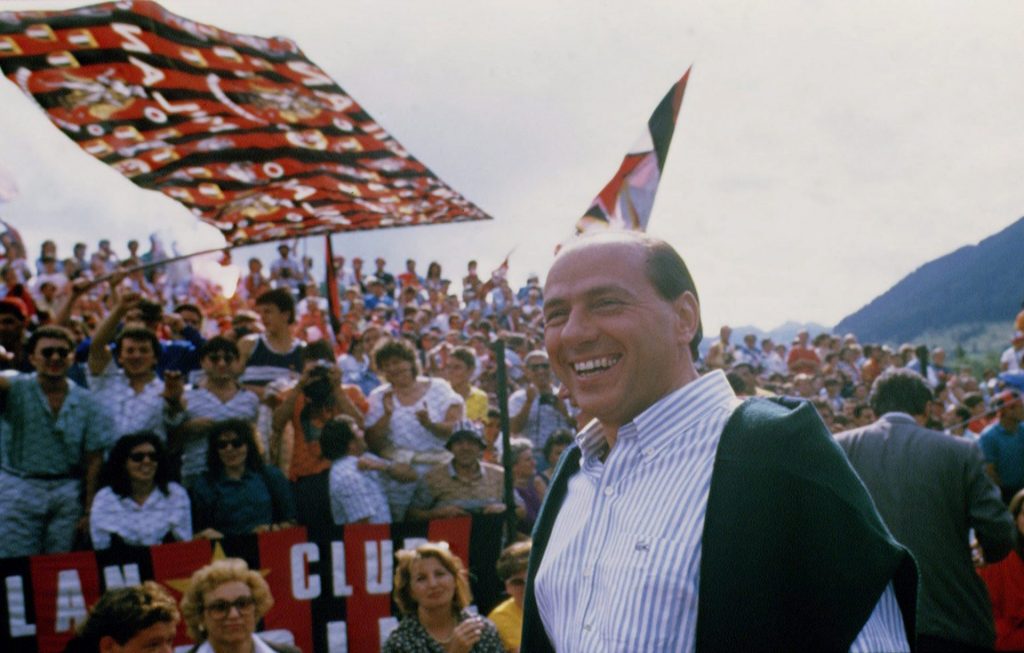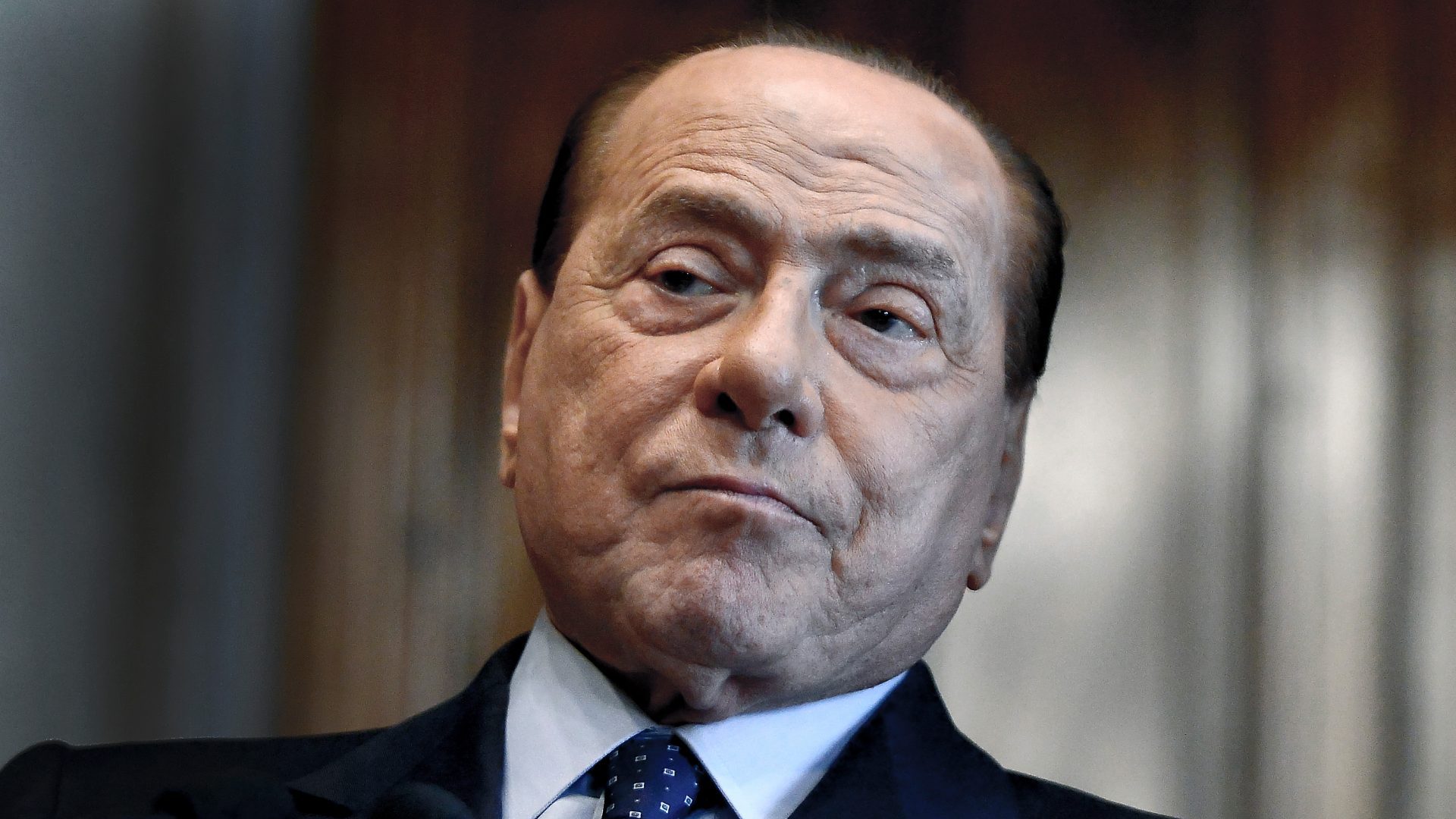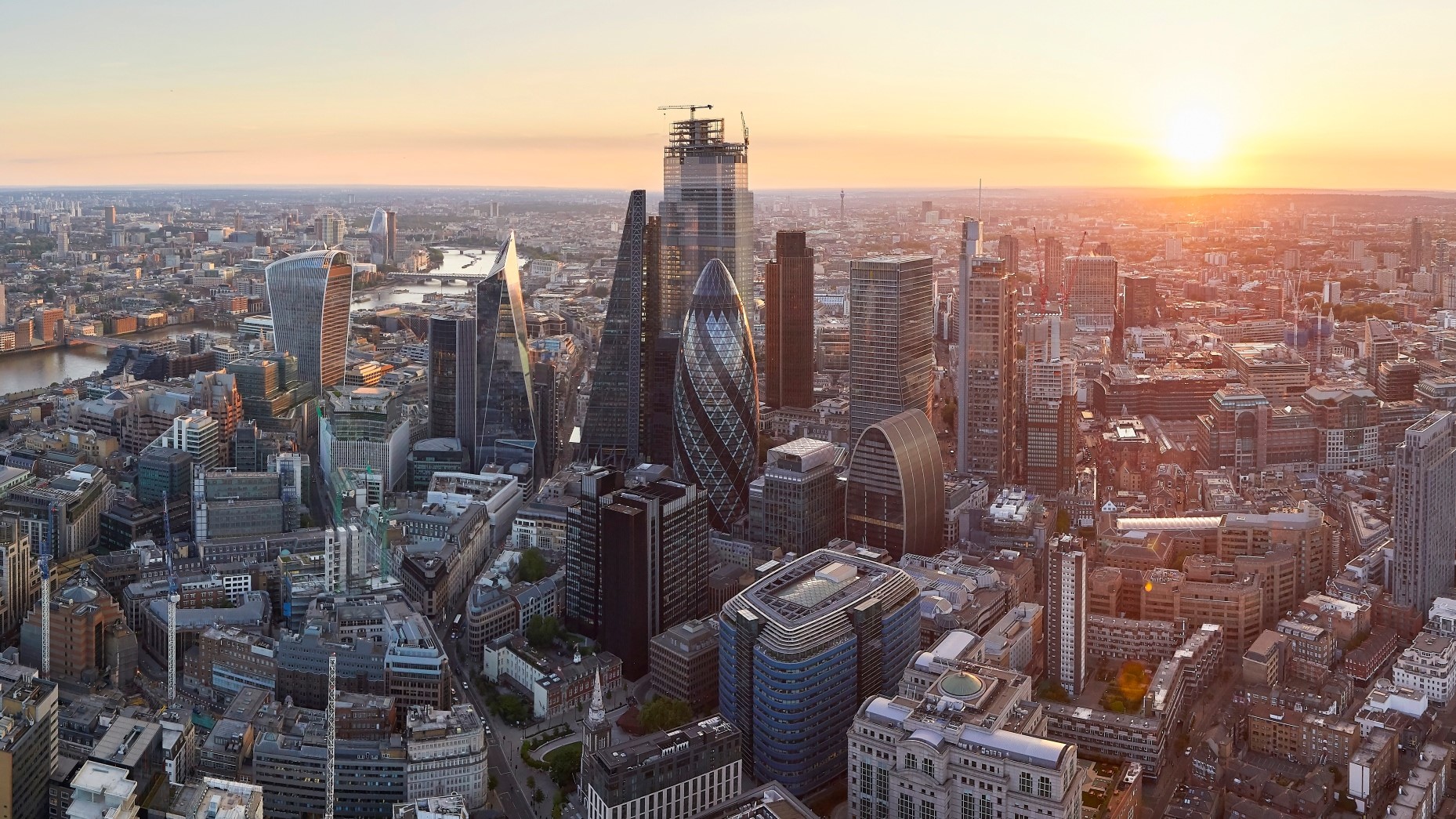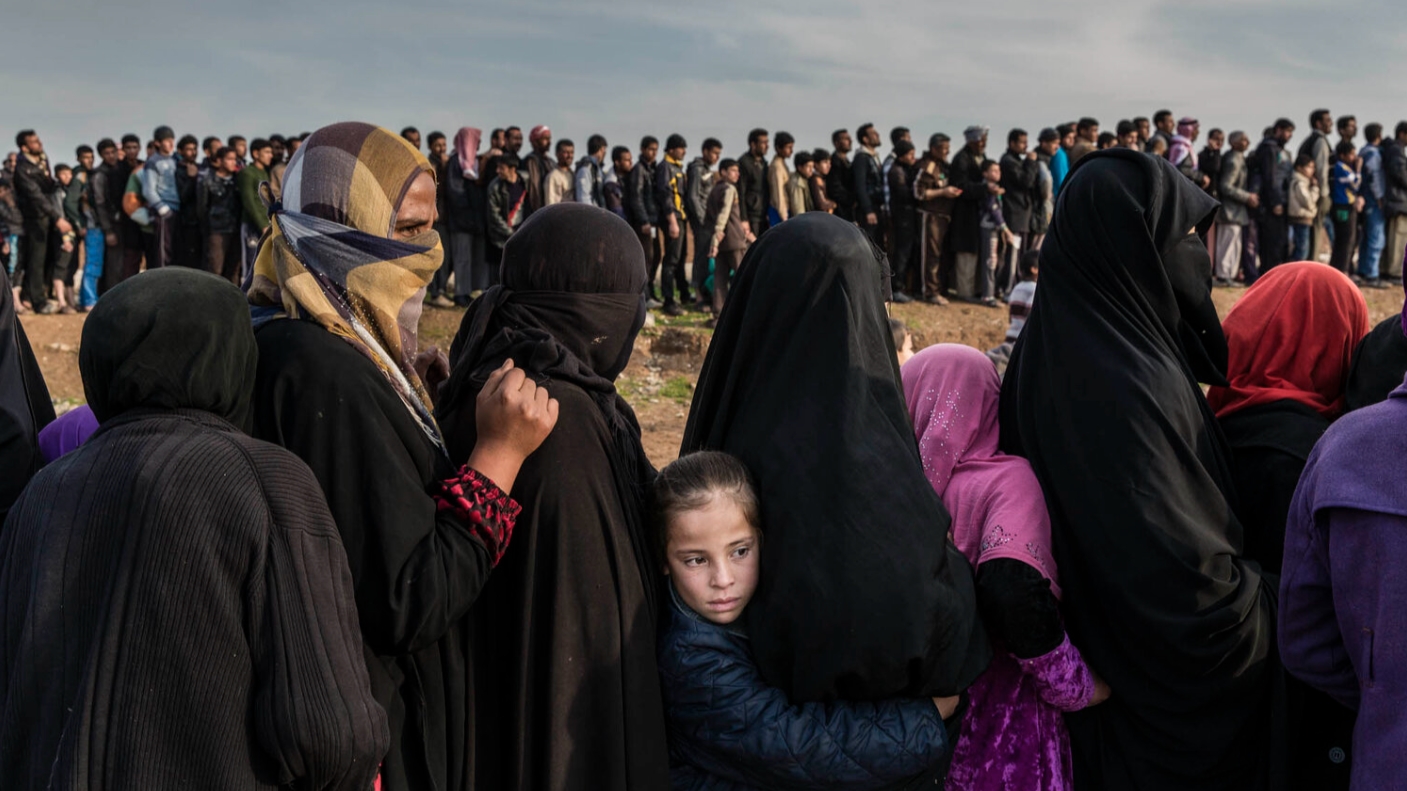How to remember, let alone define, Silvio Berlusconi? None of the usual labels really do it: ‘media mogul’, ‘populist politician’, ‘billionaire tycoon’; ‘bunga-bunga sleazebag’, ‘tax evader’ – all seem inadequate, though all are true. Never mind ‘Prime Minister of Italy’, ‘Senator’, ‘friend and ally to big business and the middle class, Cosa Nostra, Vladimir Putin, Muammar Gaddafi, Tony and Cherie Blair’ – even ‘Statesman’ …
A hegemonic figure, Berlusconi defined an age in Italy, and in some ways a face – not all faces, to be sure – of Italy itself. As the writer Andrea di Robilant put it, referring not to Berlusconi but to ‘La Nuova Italia’ – a new Italy entering and adapting to post-modernity – he came to personify, on the day I joined the Rome office of La Stampa, as correspondent for The Guardian in 1990: “la bella figura gone from class to crass”. Berlusconi represented that ‘crass’, but also another enduring Italian characteristic: survival in politics to the point of almost absolute power.
Berlusconi, who died today aged 86, was the cruise-ship crooner who came to dominate Italian media, then politics by presenting himself as emblematic of the aspirations of half the population. For every citizen who despised him, there was another who envied and admired him; who trusted his untrustworthiness, who wanted what he had: wealth, girls – and above all an ability to serially slip the net with impunity. Even when he was ridiculous and outrageous, Berlusconi was furbo – cunning – and people loved him – elected, re-elected, re-re-elected and re-re-re-elected him – for that. For that he spans the centuries: prime minister in four governments and deputy for two decades from 1994, then back into the Senate – from which he had been barred in 2013 – in 2022.
Berlusconi was born in Milan in 1936, son of a bank manager, completed his university dissertation on advertising law, and established two principles early in life: keep your friends, and a keen eye on popular culture. As a student, he befriended and played football with a young Sicilian, Marcello Dell’Utri, and played bass in a pop band with pianist Fedele Confalonieri, at night clubs and weddings. Both men would become Berlusconi’s stalwarts throughout his many careers: the former was convicted of Mafia Association in 2004, and the latter is President of Berlusconi’s television conglomerate Mediaset.
Berlusconi’s initial business endeavours were in construction. Throughout the 1970s, his company Edilnord built a suburban development called Milano 2, laid out between paved spaces and fake lakes, with homes connected by walkways to shops and restaurants – a residential dream for his future viewers and voters. The satellite town of Milano 2 was a place where people could sit at home in an apartment built by Berlusconi to watch mighty AC Milan, bought by Berlusconi in 1986, on a television station owned by Berlusconi.
Mass media was Berlusconi’s springboard, and terrain of genius. He created, mastered and manipulated what became known as tivù spazzatura’ – garbage TV. Against the three often wooden though sometimes excellent RAI state television channels, Berlusconi pitched a bedazzlement of glamorous hostesses, dancing girls and voyeuristic quiz shows.
In 1978, two things happened. Berlusconi joined the shady P2 Masonic lodge, which manoeuvred through the dark shadows of Italian power – implicated in the murder of Vatican banker Roberto Calvi in London four years later, and a litany of neo-fascist terrorist massacres. Also: he founded the Fininvest holding company, to operate a brilliant scam: a network of separate regional stations broadcasting the same material on slightly different timetables, in a country which operated a national TV monopoly and banned nationwide commercial television.
Berlusconi’s fellow Milanese, Socialist Party prime minister Bettino Craxi, made this effective private network into a legal one with a decree of 1984. Two terms emerged: Il Cavaliere, the knight, to describe Berlusconi, and Berlusconismo, a shorthand for buoyant entrepreneurialism – later adapted by his opponents to mean populist power.
By then, Berlusconi had married Veronica Laro, an actress who became mother of their three children, born during the 1980s. He had previously wed Carla Elvira Dall’Oglio, his childhood sweetheart, in 1965, who had borne him a daughter, Marina, and son, Piero Silvio. Against all odds, Laro maintained a low profile, until breaking with Berlusconi, and her silence, nearly four decades later.
Fininvest’s activities skirted the law throughout the years that followed. Its fortunes were spread across a network of off-shore companies, some of them managed by Berlusconi’s international corporate lawyer David Mills, husband of then Labour minister Tessa Jowell, who put Dell’Utri on the board of a Jersey-registered company called All-Iberian while he was under investigation for Mafia connections.
In 2009, the Italian Court of Appeal upheld a conviction of Mills for accepting a bribe from – and giving false evidence for – Berlusconi, but a sentence of four years jail expired under statute of limitations. In 2011, however, a court in Milan ordered Fininvest to pay €560m in damages to the Compagnie Industriali Riunite group over a contractual dispute.
During the years 1990-1994, a series of scandals and indictments – given the name Mani Puliti or ‘Clean Hands’ – by judges primarily in Milan put almost the entire governing class under arrest. Examining magistrates were also closing in on Berlusconi’s brother and business partner Paolo for a landfill scam, and – it was reported – Silvio himself. A vacuum had appeared at the apex of Italian party-politics; a ‘Second Republic’ was proclaimed to draw a line under decades of corruption. What was Berlusconi to do?

Of his two closest advisors one, Calabrian lawyer Cesare Previti, counselled against direct intervention in politics – a successful businessman with no political experience might not necessarily make a good national leader. (Previti, who became Berlusconi’s Minister of Defence, has since been disbarred, and convicted for bribing judges). But the other, Dell’Utri – who had meanwhile installed a well-known Mafioso, Vittorio Mangano, to care for Berlusconi’s stables at his Arcone villa near Milan, and become Fininvest’s ambassador to Cosa Nostra and vice versa – urged that his old friend Silvio stand for office, and the protections and impunities that entailed.
Accordingly, the Forza Italia party was formed, named after the slogan which roots for the national football team, and a campaign duly mounted to contest the election of 1994. It was a remarkable spectacle, borrowing from tivù spazzatura in its iconography, choreographed as television bonanza – and it worked. Berlusconi won a relative majority, forged treaties with the separatist Northern League and post-fascist National Alliance, and became prime minister. His premiership was short-lived, however, as tensions within the coalition fractured it. In 1996, the office went to the centre-leftist Romano Prodi, Berlusconi’s nemesis and thereafter visceral rival and foe.
But Berlusconi returned, Forza Italia winning the 2001 election with an irresistibly seductive ‘Contract With the Italians’ financial package. One thing that endeared Berlusconi to Italians gets little mention: after winning the 2001 election, he effectively abolished inheritance tax. The left cried foul, that this was a boon to the super-rich, but in Italy as everywhere else, they were unaffected because they paid no tax anyway. The middle and lower middle-classes were, however, liberated from the burden that crushes them in Northern Europe, especially Britain, and with them the so-called piccole e medie imprese – medium and small businesses – that form the backbone of the thriving Northern Italian economy.
In 2006, Berlusconi and Prodi faced off again, the latter prevailing by a handful of votes. But Il Cavaliere was irrepressible, and returned with a new-look alliance called ‘People of Liberty’ to win again in 2008. I remember even the weather co-operating with Berlusconi’s campaign: after a bitter winter in Torino, he held his rally on the first day of Springtide sunshine, large crowds singing a ditty he had had a hand in composing, as was his wont: ‘Meno male che Silvio c’e’ – thank God there’s Silvio.
Among Berlusconi’s policy platforms was a pledge to confront tax evasion – the irony would be laughable were the record not so devastating. In 2001, The Economist magazine published an unprecedented ‘open letter’ to Berlusconi, detailing his demonstrable crimes and misdemeanours to date. Its co-author, David Lane, later compiled the information into his definitive book Berlusconi’s Shadow. The magazine proclaimed Berlusconi ‘unfit for office’ on the basis of its exhaustive research; Berlusconi sued and lost, and was ordered to pay costs.
Berlusconi’s brushes with law began with tax evasion during the 1990s, and pursued him throughout his business and political careers. His battles with what he has insistently called a politicised judiciary out to get him have hallmarked his public life as a man with contempt for the law – yet also mastery of its shortcomings. The list of 20 indictments against Berlusconi is almost as long as that of his acquittals due to changes in law (often by his own parliaments) and statute of limitations in a country where the law is not so much as ass as a tortoise on a slow day.
They include tax evasion, violation of anti-trust, false accounting, bribing judges, defamation, perjury – even mafia association and a role in mafia outrages of 1992 and 1993. They involve a miasma of companies – controlled by Berlusconi and targets of his ambitions – but throughout, Il Cavaliere managed to avoid final convictions at the highest court in the land, the Cassazione, and jail sentences the judiciary so intrepidly tried to impose on him.
Perhaps the most flamboyant of all was the case of Karima El Mahroug, aka Ruby Rubacuori – Ruby Heart-stealer.
Berlusconi’s ‘love’ and ‘sex’ lives, if they can be called that, are his best-known trademark, for which he is at once envied and reviled. The stories, scandals, denials and counter-denials are endless. Ruby was a nightclub dancer under the age of consent when she was allegedly hired for sex at one of Berlusconi’s infamous ‘bunga-bunga’ orgies, usually held at upscale resorts on the Sardinian coast, or at Arcore. In February 2011, Berlusconi was charged with paying Ruby for sex, then abusing office to secure a cover-up. He was eventually acquitted on appeal, yet again, but the context of Ruby’s hiring serially dominated Italian – and world – headlines as it became more and more tawdry and titillating.
In 2007, Veronica Laro broke silence, with a letter in La Repubblica denouncing her husband’s salacious behaviour. Two years later, she filed for divorce (finalised in 2014).
By 2011, the lustre of Berlusconi’s magic dust was fading in the face of these tribulations, and his political shoulders were unable to carry the weight of soaring national debt. He resigned, and his limousine ran a gauntlet of jeering and coin-throwing crowds.
And in 2013, all these legal scandals came to a head: Berlusconi was finally convicted by the Cassazione of tax fraud amounting to the equivalent of €62m in the case of his television group Mediaset, and its international profits. He was sentenced, definitively for the only time, to four years jail, reduced to one year to be served with community work, and was barred from the Senate for six years.
But sure enough, Teflon Man returned: Berlusconi was elected to the European Parliament in 2019, and returned to the Senate and government as part of Italy’s penultimate coalition government in 2022, only to play a hand in its demise, and survive into the current administration of Georgia Meloni, with whom he has often crossed swords.
In foreign policy, Berlusconi forged close alliances above all with Vladimir Putin – infamously sharing a bottle of vintage sherry from the Russian Imperial wine cellar in Crimea shortly after the 2014 annexation – Colonel Gaddafi of Libya over oil, colonial reparations and migration (Berlusconi’s figure featured on murals in Tripoli) and Britain’s Tony Blair, who described Berlusconi as his closest ally in Europe. The Blairs and Il Cavaliere engaged in lavish exchanges of gifts and anyone old enough remembers their visit to Tuscany in 2008 where Berlusconi, wearing a bandana to cover his latest hair transplant, filled the skies with fireworks reading ‘Viva Tony’.
Berlusconi was master of the gaffe, but of course got away with it. Benito Mussolini was “a benign dictator”; German MEP Martin Schulz “should play a Nazi camp guard in a movie”. Victims of the 2009 Aquila earthquake should regard its aftermath as “a camping weekend”, while an African priest working to help them had “a nice tan”. President Barack Obama was “young, handsome and even tanned”.
As many Italians agreed with as were offended by his boast to the UN that Italy has “the prettiest secretaries in the world”. The right wing, insisted Berlusconi, produced more beautiful female politicians because “the left has no taste, even in women”. In 2020, Berlusconi found a new love with one such politician: Marta Fascina, who won a seat for Forza Italia in 2018. She is now 33.
I arrived late in Genova late one night, and the friend who met me took me to a railway workers’ tavola calda for excellent cheap food. An attractive young lady walked by wearing a hoodie and trainers, arm-in-arm with her boyfriend, apparently from Maghreb. “Know who that is?”, said my friend, “it’s Ruby Rubacuori”. And it was: the enamoured couple are a regular feature around the neighbourhood.
So Berlusconi is survived by Ruby, plus: Onorevole Fascina, first wife Carla Elvira Dall’Oglio and their children Marina and Piero Silvio Berlusconi; and Veronica Laro and their children Barbara, Elenora and Luigi Berlusconi.



